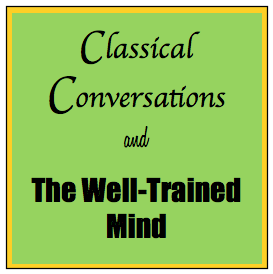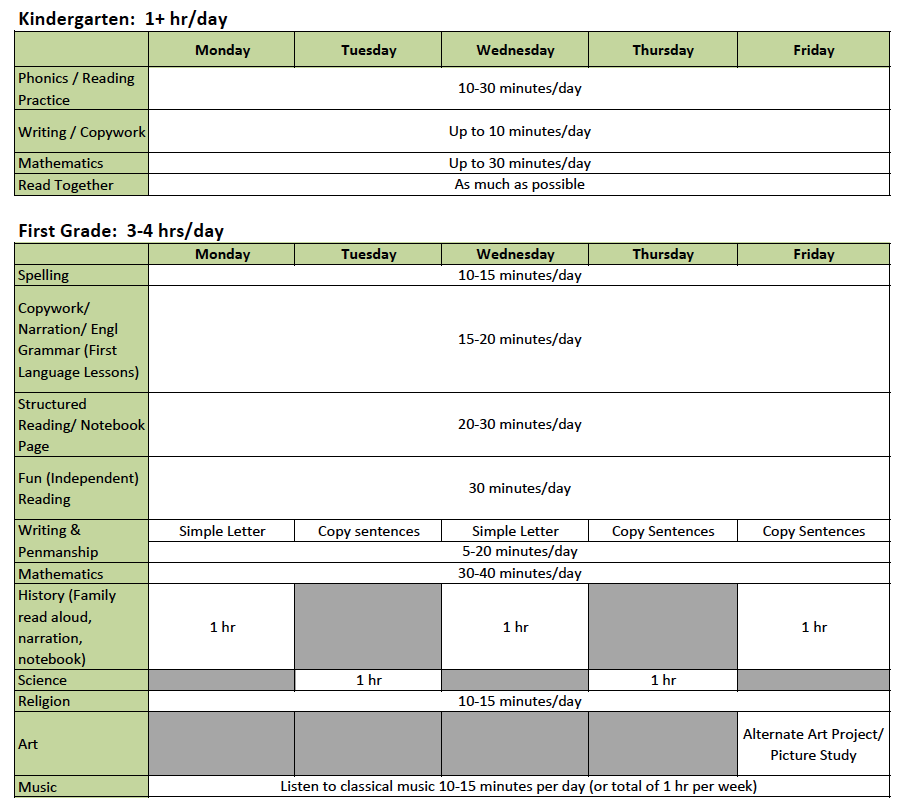 As a follow-up to my previous post on The Well-Trained Mind Schedules, I’m attempting to answer some questions I received about how The Well-Trained Mind fits in with Classical Conversations®.
As a follow-up to my previous post on The Well-Trained Mind Schedules, I’m attempting to answer some questions I received about how The Well-Trained Mind fits in with Classical Conversations®.
For those who are not familiar with Classical Conversations®, click here for a description of what a day in the life of a Foundations community looks like.
In this post, I am specifically comparing Classical Conversations to Well-Trained Mind at the grammar stage (preschool to grade 6).
Even Classical Conversations® recommends supplementing the memory work. In fact, the Classical Conversations® 2014 Catalog stated the following:
“During the Foundations program, students will focus on building a core body of knowledge to build on later studies. At home, Foundations parents can supplement their daily practice of the memory work with the following:
- Daily math lessons
- Daily math drill
- Daily reading including read alouds, phonics studies, and independent reading
- Weekly spelling practice
- Additional history and science studies
- Young children should practice copying a sentence every day while older children can practice copying paragraphs. This develops the discipline in writing and prepares students for their own original writing.”
With that, let’s revisit the Well-Trained Mind schedule for younger elementary students…
What’s the same? Math, reading, spelling, history, science, and writing/copywork
What’s different?
- First, the Well-Trained Mind is a suggested course of work for parents/students who are not participating in a classical education community.
- The Well-Trained Mind offers a suggested timeframe for doing each activity, but because it is only a guideline, you should adjust the times to fit your own needs.
- The Well-Trained Mind offers suggestions for notebooking and how to do it if you are unfamiliar with notebooking. Notebooking can take the form of narration, dictation, and copywork.
- Art and music are fine arts subjects that Classical Conversations® communities rotate through every six weeks. The addition of art/poetry study and listening to classical music would fill out the rest of the suggested WTM schedule.
- Note that the majority of the time suggested in the WTM schedule is for reading. Also note that I do not follow this strict schedule in our own homeschool. I’ve been told that not even Susan Wise Bauer follows this strict schedule.
- Both emphasize lots and lots and lots of reading.
Now… on to a specific breakdown for students in 4th grade who are enrolled in the Classical Conversations® Essentials Program:
Download a pdf of the above schedule here.
(For the WTM schedules for other grade levels, visit Revisiting Plans and Schedules with the Well-Trained Mind.)
Although it’s not required by Classical Conversations®, they’ve suggested that parents introduce a simple Latin program by 4th grade. [As a former Challenge parent, I would agree that it’s beneficial to introduce more Latin vocabulary during the elementary years. Our favorite way to incorporate Latin is through Visual Latin. For younger students, Word Up! is a fun way to incorporate some Greek & Latin word roots!]
This again is my own personal interpretation. You need not concern yourself too much about whether you’re doing enough. Provide your children with a literature-rich environment in the elementary years and teach them how to write via copywork and dictation. Math, reading, and writing are the foundation for all other subjects. And, most importantly, a heart of worship and Bible study is paramount to a successful homeschool! Education is all about discovering who He is, after all!
To find out more about our own experiences in Essentials, visit our Essentials posts.




